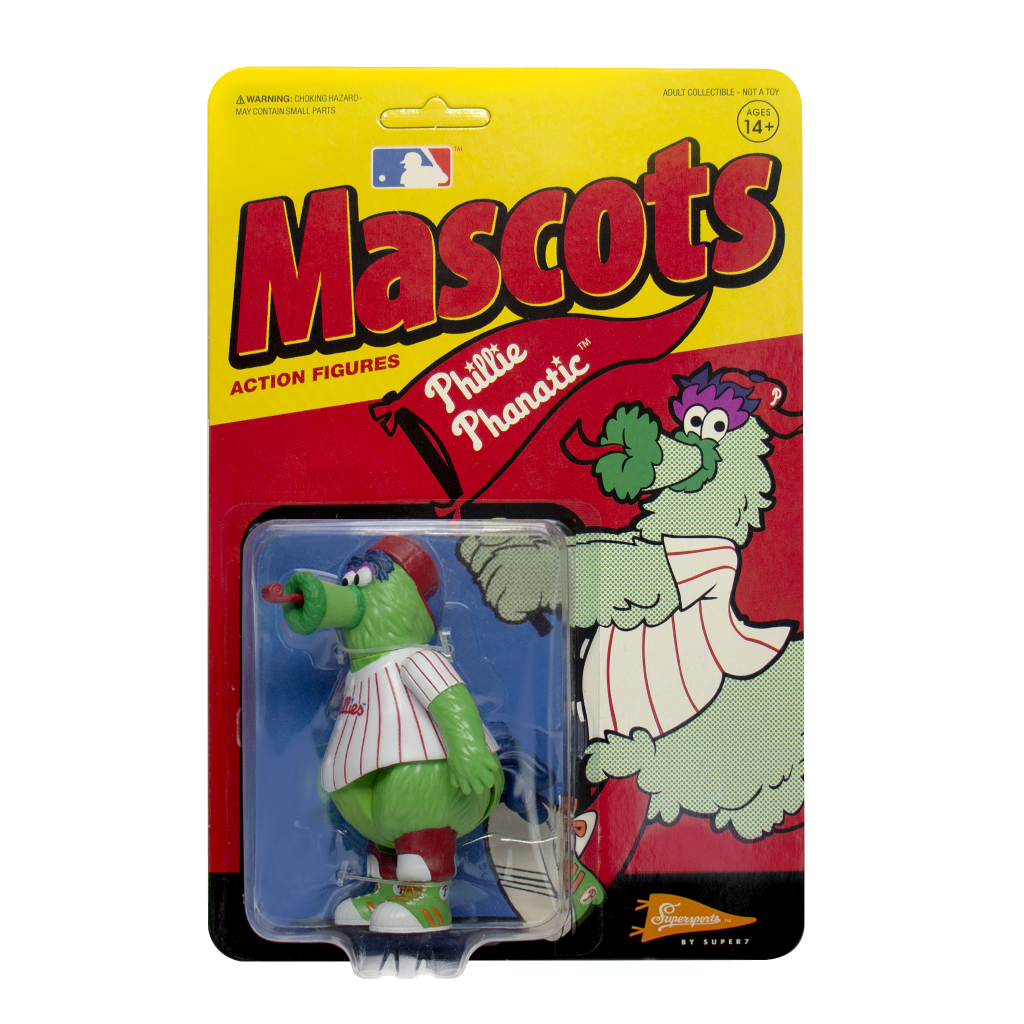Super7 is teaming with Major League Baseball to release a line of MLB mascots action figures.




Just another nerd.
Super7 is teaming with Major League Baseball to release a line of MLB mascots action figures.




The Associated Press was one of a number of outlets that reported on a lawsuit over who, if anyone, owns Major League Baseball statistics.
CBC Distribution and Marketing filed a lawsuit against MLB over the league’s requirement that companies offering fantasy baseball games pay to license game statistics from MLB. According to the AP, CBC has run an online fantasy baseball service since 1992 and had been licensing game statistics from the MPB Player’s Association. But last year the Player’s Association reach an agreement that gave MLB the sole right to license statistics.
Rather than continue the licensing agreement the CBC had with the Player’s Association or negotiate for a better deal, the MLB told CBC it simply could not use game statistics, period.
In the latest 1990s there was a similar lawsuit involving the National Basketball Association and Motorola over NBA game statistics. The NBA sued Motorola arguing that Motorola’s broadcast of up-to-the minute NBA scores violated the NBA’s intellectual property.
In 1997, the 2nd Circuit Court ruled in favor of Motorola, arguing that sporting contests are not “original works of authorship” and that Motorola’s use of statistics did not violate criteria set out under a Supreme Court decision that gives limited coverage of “hot news” — i.e. time sensitive news where organizations might be harmed if others are allowed to free ride on their scoop.
This case is a little different since CBC is profiting more directly off of the image of the MLB, its teams and its players. On the other hand, whereas Motorola was providing NBA game statistics while games were still in-progress, CBC doesn’t use the statistics until after a game is finished.
If MLB still has a proprietary interest in statistics after a game is over, does that mean it could require newspapers to license such statistics before printing a box score or league standings? Could it shut down web-based fan efforts to compile copies of fan-created score sheets for every MLB game?
Hopefully the courts will agree with CBC or the result will be a de facto database protection law of the type that has crippled the database market in the UK and Europe.
Source:
Baseball statistics: history or property? Associated press, January 15, 2006.
Database protection in the USA. Ius mentis, October 1, 2005.
If you’re like me and think baseball sucks but baseball stats rock, then O’Reilly’s upcoming Baseball Hacks might be just the thing for you. According to the PR blurb at O’Reilly,
This comprehensive guide walks readers through the sport’s core statistical categories, and then demonstrates how to use this data to truly understand baseball. Statistical analysis, data mining, probability, forecasting, and other valuable tools are examined.
Heh — he said data mining. Seriously. You know you want to learn how to compare teams and players with lattices (PDF).
This is supposed to be released in February.
Sports commentators are whining today about the Yankee’s signing of A-Rod that will likely put their payroll this season at > $200 million. Oh, it’s horrible for the game — the rest of those poor teams just can’t compete.
But wait a second — didn’t a team that had an opening day payroll of < $50 million win the 2003 World Series by handily defeating the dreaded Yankees?
Maybe other teams can’t compete with the Yankees sky-high payroll, but they can compete by outsmarting George Steinbrenner’s brute force approach to baseball domination.